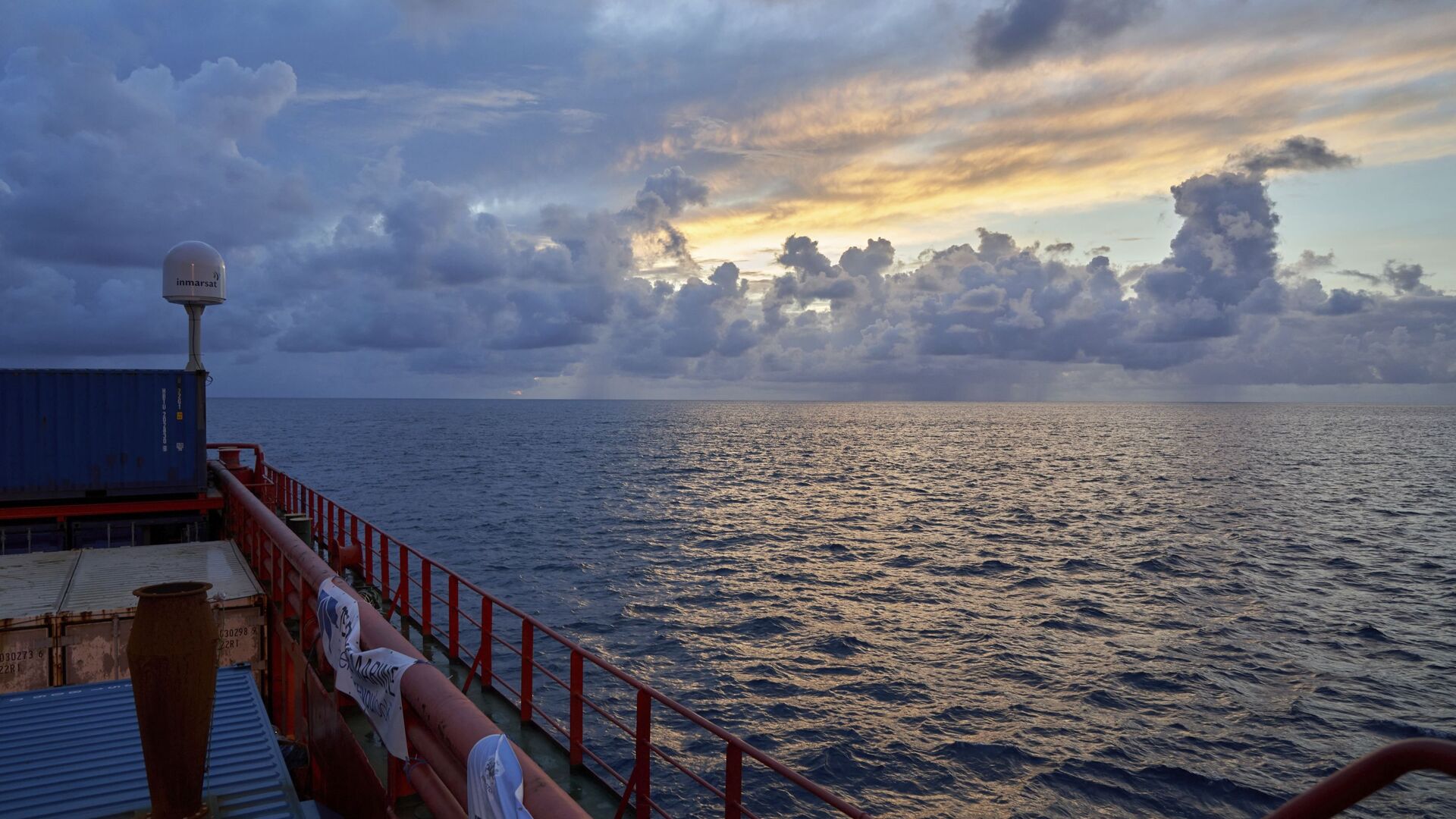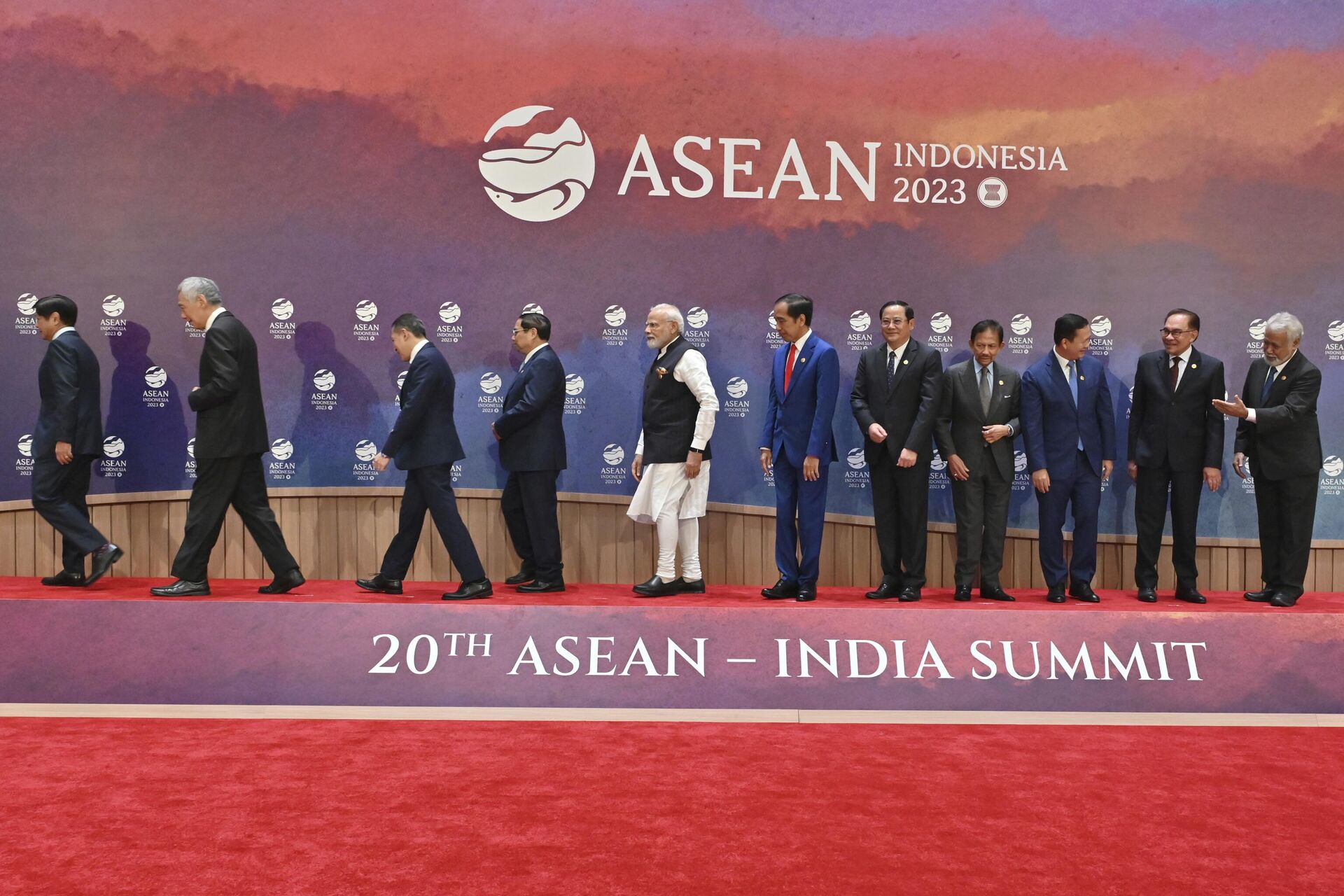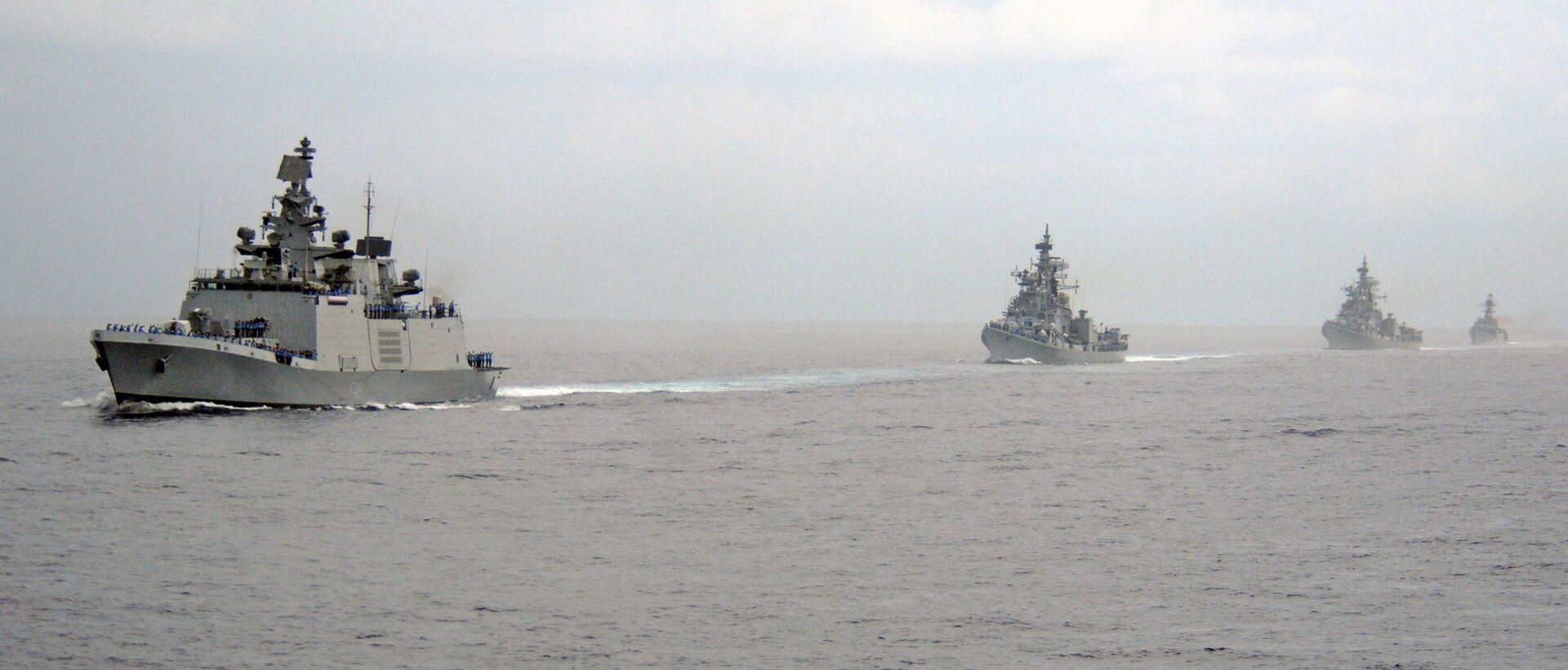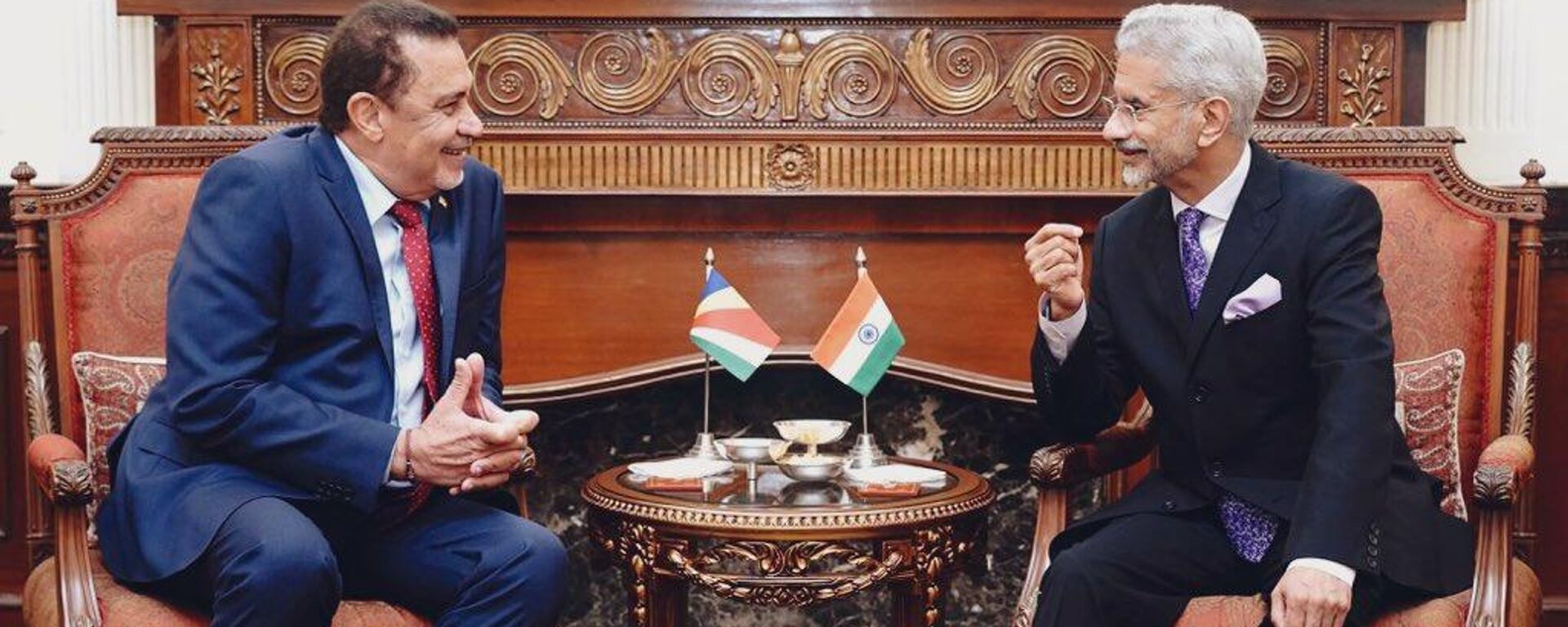https://sputniknews.in/20231128/how-does-indonesia-contribute-to-indias-maritime-policy-5609476.html
How Does Indonesia Contribute to India's Maritime Policy?
How Does Indonesia Contribute to India's Maritime Policy?
Sputnik India
The importance of Indonesia to India's naval interests is a topic that has received relatively little attention in terms of maritime cooperation. This article... 28.11.2023, Sputnik India
2023-11-28T14:26+0530
2023-11-28T14:26+0530
2023-11-28T14:26+0530
world news
joko widodo
india
indonesia
indian ocean
indian navy
the united nations (un)
indo-pacific
government of india
indian army
https://cdn1.img.sputniknews.in/img/07e7/02/0e/881813_0:161:3071:1888_1920x0_80_0_0_e7b08a9944f123e8c038b4c9ef81fdaf.jpg
The ASEAN Secretary-General was present at the 20th ASEAN-India Summit which was hosted in Jakarta, Indonesia, last month.The summit was presided over by the President of the Republic of Indonesia, Joko Widodo, the Prime Minister of the Republic of India Narendra Modi, and the President of the Democratic Republic of Timor Leste, who was an observer.The India-Indonesia relationship has been bolstered by their geographical proximity, cultural affinities, shared opposition to colonialism, and the spirit of Afro-Asian solidarity. India and Indonesia emerged as "natural partners" between the 1940s and the early 1950s due to their shared non-alignment ideologies and adherence to the Panchsheel (The Five Principles of Peaceful Co-existence).Why is Indonesia Vital for India?The Captain highlighted the shifting focus from the West to the East, underscoring the growing significance of maritime matters in 21st-century international politics. As a result, the littorals of the Indian Ocean have become increasingly alarmed about the security of the Indo-Pacific region and the Indian Ocean. Therefore, it is crucial for them to collaborate in addressing these concerns.Valuable Partner for India's Maritime PolicyWhile talking about the geographical importance, the veteran navigator pointed out that the Indonesian archipelago extends from the Andaman Sea's tip to the South China Sea via the Strait of Malacca, and from there, it passes by Java and the Banda Sea to the Pacific Ocean.Likewise, Agnihotri stated the Indonesian archipelago is a key component of global shipping because it passes through some of the most strategically significant chokepoints, including the Straits of Malacca, Sunda, Lombok, and Makassar. Also, these straits serve as ports of entry and departure for the Indian Ocean.Cooperation Between India & IndonesiaThe Indonesian and Indian Navies signed their first security agreement in 1958, and in July 1960, their fleets participated in their first joint naval exercise.Both the Indonesian and Indian navies have conducted coordinated maritime patrols at their shared maritime border, which is located at the northern entrance of the Strait of Malacca, also known as the "Six Degree Channel."Additionally, the Captain stated that Indonesia takes part in the Indian Ocean Naval Symposium (IONS) and multilateral naval exercises led by India, including Search and Rescue Exercise (SAREX) and Multilateral Naval Exercise (MILAN).Roadmap AheadThe Captain insisted that the ships and submarines from particular countries that cross the Indonesian Straits and enter the Indian Ocean are of interest to India. Underwater Domain Awareness (UDA) will be relatively easy to maintain if there are subaquatic sensors below the straits, which would be very easy to install and monitor.
https://sputniknews.in/20231124/exploring-india-seychelles-bilateral-relationship-defence--economic-cooperation-5555993.html
india
indonesia
indian ocean
indo-pacific
Sputnik India
feedback.hindi@sputniknews.com
+74956456601
MIA „Rossiya Segodnya“
2023
Swapna Nair
https://cdn1.img.sputniknews.in/img/07e7/09/12/4320104_0:0:681:681_100x100_80_0_0_ca8a7d4d582609272840ffdd1cde7278.jpg
Swapna Nair
https://cdn1.img.sputniknews.in/img/07e7/09/12/4320104_0:0:681:681_100x100_80_0_0_ca8a7d4d582609272840ffdd1cde7278.jpg
News
en_IN
Sputnik India
feedback.hindi@sputniknews.com
+74956456601
MIA „Rossiya Segodnya“
Sputnik India
feedback.hindi@sputniknews.com
+74956456601
MIA „Rossiya Segodnya“
Swapna Nair
https://cdn1.img.sputniknews.in/img/07e7/09/12/4320104_0:0:681:681_100x100_80_0_0_ca8a7d4d582609272840ffdd1cde7278.jpg
maritime policy, india indonesia ties, asean india summit, jakarta, indonesia, republic of indonesia, joko widodo, the prime minister of the republic of india, narendra modi, president of the democratic republic of timor leste, india indonesia, cultural affinities, natural partners, northern sumatra, maritime border, maritime borders, captain kamlesh agnihotri, international politics, indo pacific region, indian ocean, indo pacific, president joko widodo jokowi, maritime power, indo pacific pacindo, indonesian archipelago, andaman sea, south china sea, strait of malacca, banda sea, pacific ocean, global shipping, straits of malacca, sunda, lombok, makassar, indian ocean zone of peace proposal iozop, andaman sea, six degree channel, indian ocean naval symposium ions, search and rescue exercise sarex, multilateral naval exercise milan,
maritime policy, india indonesia ties, asean india summit, jakarta, indonesia, republic of indonesia, joko widodo, the prime minister of the republic of india, narendra modi, president of the democratic republic of timor leste, india indonesia, cultural affinities, natural partners, northern sumatra, maritime border, maritime borders, captain kamlesh agnihotri, international politics, indo pacific region, indian ocean, indo pacific, president joko widodo jokowi, maritime power, indo pacific pacindo, indonesian archipelago, andaman sea, south china sea, strait of malacca, banda sea, pacific ocean, global shipping, straits of malacca, sunda, lombok, makassar, indian ocean zone of peace proposal iozop, andaman sea, six degree channel, indian ocean naval symposium ions, search and rescue exercise sarex, multilateral naval exercise milan,
How Does Indonesia Contribute to India's Maritime Policy?
The importance of Indonesia to India's naval interests is a topic that has received relatively little attention in terms of maritime cooperation. This article by Sputnik India delves into the reasons behind this significance and aims to shed light on the subject.
The ASEAN Secretary-General was present at the 20th ASEAN-India Summit which was hosted in Jakarta, Indonesia, last month.
The summit was presided over by the President of the Republic of Indonesia, Joko Widodo, the Prime Minister of the Republic of India Narendra Modi, and the President of the Democratic Republic of Timor Leste, who was an observer.
The
India-Indonesia relationship has been bolstered by their geographical proximity, cultural affinities, shared opposition to colonialism, and the spirit of Afro-Asian solidarity.
India and Indonesia emerged as
"natural partners" between the 1940s and the early 1950s due to their shared non-alignment ideologies and adherence to the Panchsheel (The Five Principles of Peaceful Co-existence).
Why is Indonesia Vital for India?
“Strategically, Indonesia and India share a maritime border — the province of Aceh is separated by just 162 kilometres (km). Similarly, India and Indonesia have also successfully resolved their dispute over the delimitation of their maritime borders,” Captain Kamlesh Agnihotri (Retd), Senior Fellow, National Maritime Foundation, told Sputnik India.
The Captain highlighted the shifting focus from the West to the East, underscoring the growing significance of maritime matters in 21st-century international politics. As a result, the littorals of the Indian Ocean have become increasingly alarmed about the security of the
Indo-Pacific region and the Indian Ocean. Therefore, it is crucial for them to collaborate in addressing these concerns.
Valuable Partner for India's Maritime Policy
“Indonesia has referred to itself as the "Global Maritime Fulcrum" (GMF) in the Indo-Pacific; which is a phrase that President Joko Widodo (Jokowi) stated in his election manifesto. The GMF's overarching goal is to make Indonesia a
maritime power in the Indo-Pacific (PACINDO) area,” Agnihotri noted.
While talking about the geographical importance, the veteran navigator pointed out that the Indonesian archipelago extends from the
Andaman Sea's tip to the South China Sea via the Strait of Malacca, and from there, it passes by Java and the Banda Sea to the Pacific Ocean.
Likewise, Agnihotri stated the Indonesian archipelago is a key component of global shipping because it passes through some of the most strategically significant chokepoints, including the Straits of Malacca, Sunda, Lombok, and Makassar. Also, these
straits serve as ports of entry and departure for the Indian Ocean.
“A significant route between the Pacific and Indian oceans is the Strait of Malacca. India depends heavily on the Strait of Malacca for 40% of its imports, making it a strategically important strait, which makes Indonesia a valuable partner,” the Captain remarked.
Cooperation Between India & Indonesia
The Indonesian and Indian Navies signed their first security agreement in 1958, and in July 1960, their fleets participated in their first joint naval exercise.
“India and Indonesia made a commitment to reduce the influence of Western powers in the Indian Ocean throughout the 1960s and 1970s. As a result, they agreed to co-sponsor the Indian Ocean Zone of Peace Proposal (IOZOP), even though it was never implemented. Following that, in 1989 and 1991, India and Indonesia conducted bilateral naval drills in the Andaman Sea and off Surabaya,” Agnihotri said.
Both the Indonesian and Indian navies have conducted
coordinated maritime patrols at their shared maritime border, which is located at the northern entrance of the Strait of Malacca, also known as the
"Six Degree Channel."Additionally, the Captain stated that Indonesia takes part in the
Indian Ocean Naval Symposium (IONS) and multilateral naval exercises led by India, including Search and Rescue Exercise (SAREX) and Multilateral Naval Exercise (MILAN).
“Internationally operating warships and submarines must pass through one of the straits that Indonesia controls sovereignly. Owing to the straits' relative narrowness and shallow depth, Indonesia is enabled to monitor ship passage. India sees a great deal of potential for future collaboration with Indonesia in this area,” the Captain said.
The Captain insisted that the ships and submarines from particular countries that cross the Indonesian Straits and enter the Indian Ocean are of
interest to India. Underwater Domain Awareness (UDA) will be relatively easy to maintain if there are subaquatic sensors below the straits, which would be very easy to install and monitor.
“Both Indonesia and India can cooperate to transfer technologies related to shipbuilding or submarine building, as the former is looking to modernise its navy and the latter has a thriving defence industry as a result of its advancements in shipbuilding,” Agnihotri stated.





